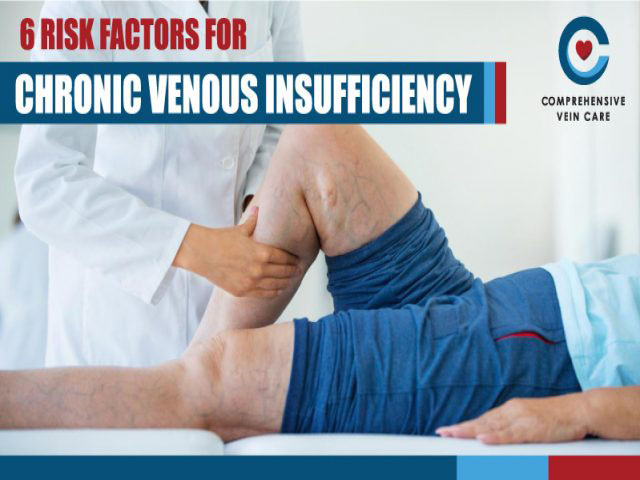Recent Blogs
- Top 7 Ways to Treat a Ruptured Varicose Vein Safely
- What's Behind the Sudden Appearance of Pesky Spider Veins?
- Varicose Veins and Athletes: Can Sports Cause or Prevent Them?
- Caring for Your Friends’ and Family’s Vein Health
- What is The Cause For Itchy Varicose Veins?
- Vein Diseases Linked with Superficial and Deep Veins
- Varithena – FDA-Approved Varicose Vein Treatment
- Top 10 Varicose Vein Myths-Busted!
- Do’s and Don’ts for Supporting Vein Health Naturally
- Free Legs Vein Screening
Published on: 05-Dec-2019

Veins and arteries play major roles in our circulatory system. While arteries carry oxygenated blood away from the heart to the rest of the body, veins bring back blood low in oxygen from the body to the heart. It is safe to say that venous health is quite important and that damaged or weak veins will result in health complications ahead.
Problems that arise due to the veins been unable to send blood from legs to the heart is commonly called Venous Insufficiency. You might not notice any symptoms of the weak veins initially, but the conditions can worsen over time causing severe pain and serious health risks.
How do we find out if we are at risk of venous insufficiency? The factors mentioned below can increase the risk of vein issues. Are you prone to any of these factors?
- Age
If you are above the age of 50, you are facing a higher risk of developing venous insufficiency. As age increases, veins will weaken and will not possess sufficient strength to do their job. Weakened veins will have to struggle to return the blood back to your heart.
- Hormones
Shifting in hormones can become a major risk factor for venous problems. The most common phase for this change to happen is during pregnancy. Each pregnancy can increase the chances of developing vein problems. During pregnancy, your body undergoes significant changes and additional pressure is put into your veins resulting in varicose veins and haemorrhoids (also a type of venous insufficiency).
- Obesity
It should not come as a surprise that obesity could lead to various health issues. While you are more focused on heart issues, cholesterol, and diabetes you should not forget that obesity can be disastrous to your veins as well.
The weight and pressure that falls on the veins will prevent them from functioning normally. Since their regular functioning is hindered, veins will not be able to return the blood effectively. This causes blood to pool especially in legs and other parts of your body.
- Genetics
This is a factor that is simply not under your control. You cannot fight genetics after all. However, you can attempt to keep your venous insufficiency under control or less severe by focusing on your health and taking precautions.
- Sedentary Lifestyle
Sitting or standing for long periods of time is harmful to your overall health, it can especially be damaging to your veins. The longer you remain in the same position (standing or sitting), the harder your body would find to pump blood.
Your veins would be struggling against gravity to pump blood back to your heart if you are sitting or standing continuously. If your job requires to sit or stand for long periods, it is a good practice to take a walk at regular intervals, so that your veins do not have to work at their maximum strength.
A sedentary lifestyle where most of us are guilty of currently can also lead to weight gain, and as mentioned earlier obesity is harmful to your vein health as well.
- Smoking
We all are familiar with the harmful effects of smoking. But did you know that smoking can cause venous insufficiency as well? Smoking causes your vein walls to weaken, boosting the risk of venous insufficiency.
With effort and determination, some of these factors can be controlled. As for the factors that are uncontrollable, leading a healthy life and by being attentive to your body can lessen the severity of your vein issues.
If you are at risk or already suffering from varicose veins or spider veins, Book a Free Consultation with us now and let us help you get back your vein health.